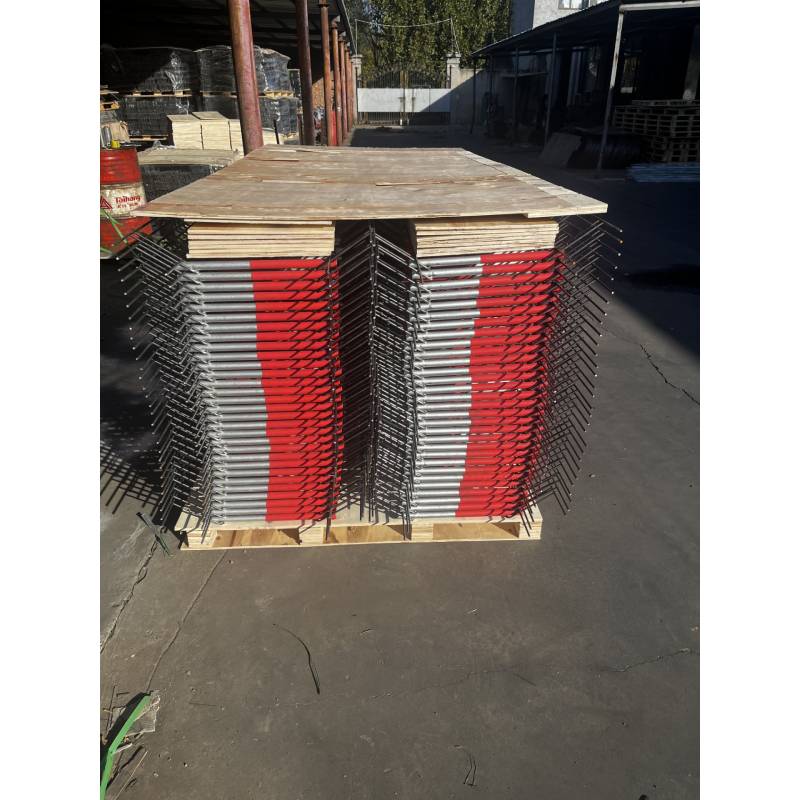
- Mobile Phone
- +8613931874955
- sales@cntcmetal.com
Jul . 12, 2024 13:12
Back to list
Cavity ties for reinforcement in concrete structures for added durability and stability.
Cavity ties are an essential component in the construction industry, especially in the context of building cavity walls. These ties play a crucial role in ensuring the stability and strength of the walls, as well as providing structural support and preventing the buildup of moisture within the cavity.
Cavity ties are typically made of stainless steel or galvanized steel, which are highly durable and resistant to corrosion. They are designed to connect the two layers of a cavity wall together, ensuring that they remain securely in place and do not separate over time. Without cavity ties, the walls would be at risk of collapsing or becoming unstable, making them a vital component in the construction process.
One of the key functions of cavity ties is to prevent the movement of the two wall layers relative to each other. This is especially important in areas with high wind or seismic activity, where the walls need to be able to withstand lateral forces without buckling or collapsing. Cavity ties help to distribute these forces evenly across the entire wall structure, ensuring its stability and integrity.
In addition to providing structural support, cavity ties also help to prevent the buildup of moisture within the cavity

cavity ties. When moisture accumulates within the cavity wall, it can lead to a range of problems, including mold growth, decay of the wall materials, and reduced thermal insulation properties. By allowing for proper ventilation and drainage within the cavity, cavity ties help to prevent these issues and ensure the long-term durability of the wall. There are several different types of cavity ties available, each designed for specific applications and construction requirements. These include wall starters, channel ties, and twist ties, among others. The choice of cavity tie will depend on factors such as the type of wall construction, the materials being used, and the environmental conditions of the site. Overall, cavity ties are a critical component in the construction of cavity walls, providing essential structural support and preventing the buildup of moisture within the wall cavity. Without cavity ties, cavity walls would be at risk of structural failure and damage, compromising the safety and longevity of the building. Therefore, it is important to select the appropriate cavity ties for each construction project and ensure they are installed correctly to guarantee the overall integrity and stability of the walls.

cavity ties. When moisture accumulates within the cavity wall, it can lead to a range of problems, including mold growth, decay of the wall materials, and reduced thermal insulation properties. By allowing for proper ventilation and drainage within the cavity, cavity ties help to prevent these issues and ensure the long-term durability of the wall. There are several different types of cavity ties available, each designed for specific applications and construction requirements. These include wall starters, channel ties, and twist ties, among others. The choice of cavity tie will depend on factors such as the type of wall construction, the materials being used, and the environmental conditions of the site. Overall, cavity ties are a critical component in the construction of cavity walls, providing essential structural support and preventing the buildup of moisture within the wall cavity. Without cavity ties, cavity walls would be at risk of structural failure and damage, compromising the safety and longevity of the building. Therefore, it is important to select the appropriate cavity ties for each construction project and ensure they are installed correctly to guarantee the overall integrity and stability of the walls.
share:
Latest news
-
Your Source for Concrete Wall Ties and Masonry AccessoriesNewsJul.10,2025
-
Unlocking the Power of Iron Wire for Every ProjectNewsJul.10,2025
-
Explore Advanced Chain Wire and Stainless Steel Mesh FencingNewsJul.10,2025
-
Discover the Benefits of Annealed Wire ProductsNewsJul.10,2025
-
Discover China Stainless Steel Wire Mesh SolutionsNewsJul.10,2025
-
Build with Confidence Using High-Performance Masonry AccessoriesNewsJul.10,2025
-
Why Sacrificial Formwork Is Redefining Underground ConstructionNewsJun.06,2025



















